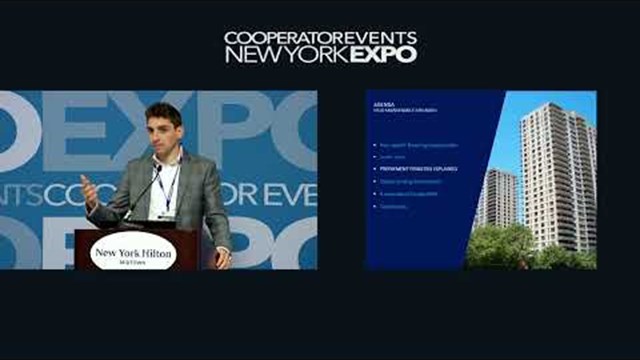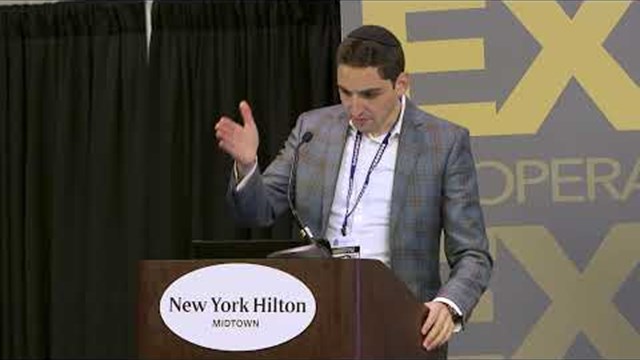While for many laypeople cooperatives and condominiums are essentially interchangeable, from the legal point of view they are radically different institutions.
Much of this difference can be attributed to history. Co-ops have existed in one form or another for a thousand years; condos have only been around for 50. As one would expect, co-op law is therefore fairly stable and well-developed, while condominium law is still in something of a state of improvisation.
Apples & Oranges
Nowhere is the difference more clearly illustrated than in the most basic act of communal living: the compulsory collection of common charges. From a collections point of view, anything you may know about condos only gives you bad information about co-ops—and vice versa. In a co-op, eviction for nonpayment could happen in as little time as a few months, while the same process could take more than a year in a condo. A co-op eviction for nonpayment is essentially the same as an eviction from ordinary rental housing, and goes relatively quickly and inexpensively before the New York City Civil Court. For a condo, the proceeding starts in State Supreme Court and then may (or may not) eventually end up in Civil Court—or not, as the board chooses.
A condo eviction has its roots in mortgage foreclosure procedure and is subject to the expenses and complications associated with that process. For condos of modest means, this immediately leads to a problem. Since there is no profit motive in a condo, common charges are as low as the board can keep them. For as complicated and onerous as the process is, the amounts to be recovered in a condo common charge foreclosure are often not even enough to cover the legal fees associated with going after them.
Why Fight?
So why spend thousands of dollars to chase after hundreds of dollars? There are two reasons. One is that the legal fees themselves are recoverable from the unit owner in arrears. The other is that if the board makes a policy of not pursuing foreclosures, unit owners will routinely stop paying their common charges, and the condo as a whole risks financial collapse.
The first step for the board is sending a demand letter to the unit owner. If this fails to bring the owner into line, the next step is filing the lien with the city’s recording office. The board should do this as quickly as possible since in a foreclosure sale (with some technical exceptions) liens are paid from the sale proceeds penny-for-penny in the order in which they were filed.
At this point, the owner is likely aware that there are going to be serious consequences to continuing nonpayment. Settlement agreements can include the board’s attorney holding in escrow a deed to the condo from the delinquent unit owner. Because the unit owner is directly liable for “reasonable” attorneys’ fees incurred by the board, and because those fees are usually substantially more than the arrears themselves, most owners at this point are highly motivated to settle—so much so that very few cases proceed past this point.
Recall that even if the court does not award the full attorneys’ fees to the board and even if the board is unable to collect them fully from the proceeds of a foreclosure sale, the board itself is liable to the attorney for his or her charges. This actually works to the board’s advantage in the negotiation process as the board can truthfully point out to the delinquent that failure to pay the charges at this early stage would result in common charges going up for everyone—which strains relations between neighbors, to say the least.
For those few cases that go beyond this point, the board’s attorney has no choice but to bring an actual foreclosure proceeding. This has numerous distinct—and expensive—steps, including ordering a title report, drafting, filing, and serving court papers, and getting a referee to sell the apartment at auction. Of course, that case can at any point be settled and any owner who can come up with the arrears money, court costs, and attorneys’ fees has ample motivation to do so—provided the condo unit is worth more through a normal private sale than the sum of the unit owner’s debts docketed against the unit.
If the unit owner has a tenant, the law allows the board to collect common charges directly from tenants of unit owners.
However, the law does not give a procedure for compelling the tenant to pay them. Most such tenants respond to the board’s attorneys, “I will not pay these charges to you without a court order.” Actually, although the law does not have a direct way for compelling the payment, attorneys for the board can get a court order against the unit owner’s tenant saying that it is okay for the tenant to pay the board directly. The fear of being named in such a suit generally suffices to bring the tenant to heel and to make payments voluntarily. However, if need be, the suit can go forward and the attorneys’ fees for such can be added to the sums that the board collects by way of the tenant’s rent.
Generally speaking, grabbing every cent of the rent money from the tenant makes the unit owner at peril in paying the individual mortgage on the unit and brings the unit owner back in line in paying the common charges. While filing the lien as early as possible is essential, there is no real rush to file the actual lawsuit against the unit owner. The first thing the board needs to know in making the decision whether to foreclose on its lien is whether there is a mortgage on the individual unit. Since that mortgage will always have greater seniority than the board’s lien, the board has no motivation to go through a foreclosure if the bank is also foreclosing, especially in the current market where the bank’s lien may well exceed the value of the apartment. The legal actions available to a condo board to collect its common charges are vastly more clumsy than those available to a co-op. On the other hand, the unit owner in a condo has nearly no defenses to such a proceeding. So it is relatively rare for a condo to have to go through the entire procedure as most unit owners are highly motivated to enter into a settlement agreement.
Adam Leitman Bailey is a founder and partner at Adam Leitman Bailey, P.C., a real estate law firm based in Manhattan. Partner Dov Treiman contributed to this article.










Comments
Leave a Comment